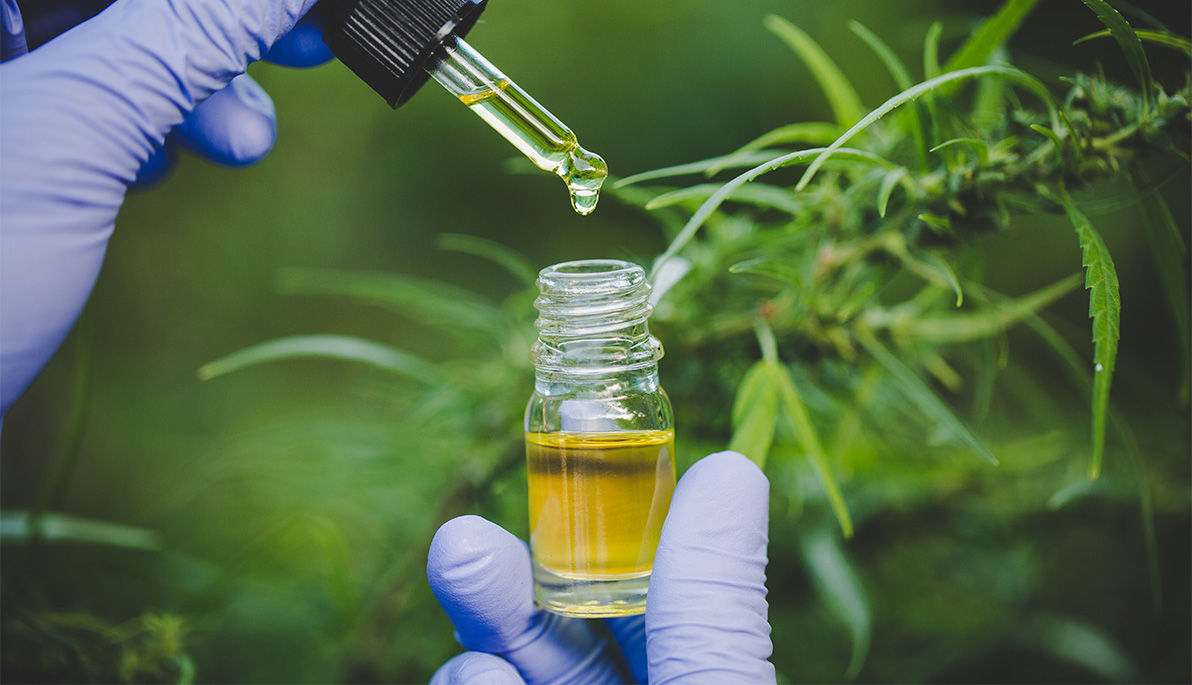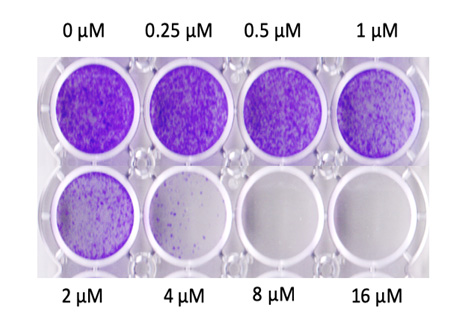
CBD May Prove to Be a Promising Anti-Cancer Drug
December 2, 2020
Today’s consumer is gob smacked by CBD-infused products claiming to provide a wide array of health benefits.
Brunch menus now offer CBD pancakes. Major drug store retailers like Walgreens are announcing plans to provide CBD-infused pain relief creams. Even Martha Stewart just released a line of CBD gummies and oils.
Brands are throwing their full marketing might to peddle bold statements about the benefits of CBD. Some companies have even targeted products specifically to cancer patients, causing the Food and Drug Administration (FDA) to issue consumer warnings about the dangers of false advertising. That is because few CBD-infused product promotions seem to be backed by science—an alarming realization considering that cancer patients are medically vulnerable. So, what, exactly, has scientific research shown us about CBD’s ability to treat cancer?
In the October 30 issue of the scientific journal Cancers, four NYIT College of Osteopathic Medicine (NYITCOM) researchers suggest that CBD’s potential cancer prevention and treatment benefits may warrant further exploration.
Under the mentorship of Dong Zhang, Ph.D., associate professor of biomedical sciences, NYITCOM students Emily Seltzer, Andrea Watters, and Danny MacKenzie Jr., along with NYITCOM alumna Lauren Granat (D.O. ’20), now a resident physician at the Cleveland Clinic, reviewed hundreds of academic studies and scientific papers to examine CBD’s potential as an anti-cancer drug.
While medical cannabis has sparked much debate, growing evidence suggests that many patients, including cancer patients, could benefit from its effects. The cannabis sativa plant has more than 100 different chemical compounds known as cannabinoids, each with its own unique function. CBD, short for cannabidiol, is just one of these compounds but is unique in that it poses no psychogenic effects. This means that it does not cause the “high” that many people associate with marijuana, making it an attractive natural compound for cancer treatment. A 2017 study performed in the State of Washington, where marijuana is legal, found that 25 percent of cancer patients surveyed were already using the drug to self-manage symptoms such as pain, nausea, anxiety, and insomnia.

Pictured: NYITCOM researchers treated the same number of melanoma cells with varying concentrations of CBD. After 7 to 10 days, the cells were stained with crystal violet dye. The researchers quantified that CBD suppressed the viability of 50 percent of the melanoma cells with a concentration of 2.45 µM. As shown, nearly all the cells were dead after treatment with 4 µM of CBD.
When NYITCOM biomedical sciences Professor and Department Chair Martin Gerdes, Ph.D., obtained 100 percent pure CBD from a commercial supplier, the team conducted preliminary investigations to test its effects on a variety of cancers, including melanoma. With some firsthand experience under their belt, the group wanted to thoroughly detail CBD’s current status as a potential cancer treatment or additive measure to other treatments like chemotherapy and radiation. Their paper, “Cannabidiol (CBD) as a Promising Anti-Cancer Drug,” is the result of their dedicated and rigorous review of 134 pieces of scientific literature.
The paper details how CBD has been shown to kill cancer cells, as well as prevent them from spreading throughout the body. It does this by binding to the cancer cells’ cannabinoid receptors, proteins anchored on the surface of a cell that regulates inflammation, cell survival, and the cell’s ability to replicate. CBD also binds to another family of cell surface proteins called transient receptor potential vanilloid (TRPV) channels, which regulate the amount of calcium within the cell. When CBD binds to the cannabinoid or TRPV channels, protein expression is altered, leading to a buildup of free radicals known as reactive oxygen species and misfolded proteins. This buildup ultimately inhibits the cancer cell’s ability to survive.
The researchers conclude that, at this time, many cancers show promising results in vitro (tested outside an organism’s body) and in vivo (tested within an entire, living organism), but that few clinical trials for cancer have yet to use CBD. However, one area of cancer research with increasing and promising findings included glioma/glioblastoma, a type of brain cancer that made national headlines when Senator John McCain succumbed to the disease in 2018.
The preliminary results for these brain cancers were compelling because CBD, alone, inhibited cancer cell and tumor proliferation. New studies using animal models and two clinical trials also showed promising anti-cancer results. The preliminary results of a glioma/glioblastoma clinical trial testing CBD with THC and the chemotherapy drug Temozolomide showed increased one-year survival with no major toxicities. The NYITCOM researchers are encouraged because, so far, these results seem to back what science has previously shown us about CBD: when used in combination with radiation or chemotherapy drugs, CBD has synergistic effects on glioma cell lines, meaning it can help stop the proliferation of cancer cells that keep dividing and growing over time.
While many experts agree that CBD could be the next budding cancer therapy, there are still a lot of unknowns, a point that NYITCOM researchers are careful to note, mentioning that they still await the complete results of the clinical trials.
Yet, regardless of one’s personal beliefs, the NYITCOM paper tells us that one thing is for sure: we still have much to discover about CBD’s full potential as an anti-cancer drug.
More Features

An Alumnus’ Commitment to the Environment
As an energy management graduate from New York Tech’s Vancouver campus, Jasdeep Gulati (M.S. ’22) is highly invested in educating people about environmental and climate sustainability.

Vancouver Faculty Win University-Sponsored Research Awards in New Program
The new Global Impact Research Grant (GIRG) program has been developed to keep Vancouver-based faculty connected to faculty and research projects being conducted on the university’s New York campuses.

Studying Climate Change One Degree at a Time
Junhua Qu (M.S. ’24) began her collegiate journey in Beijing. But, her interest in climate change took her to New York Tech’s Vancouver campus to study energy management.
